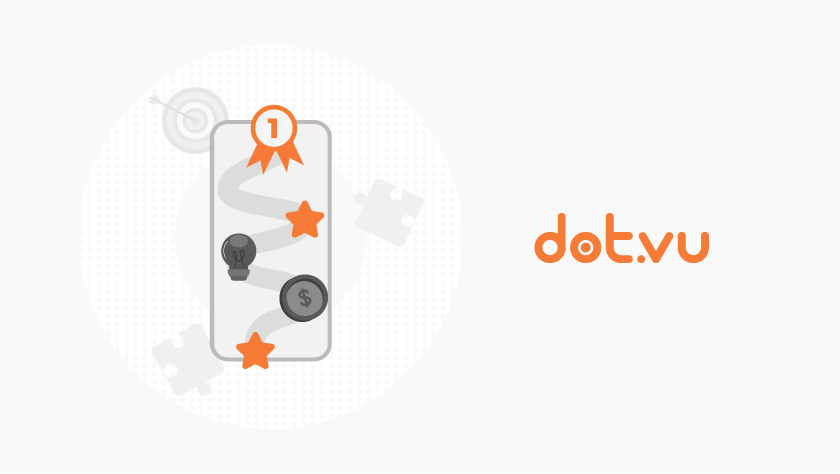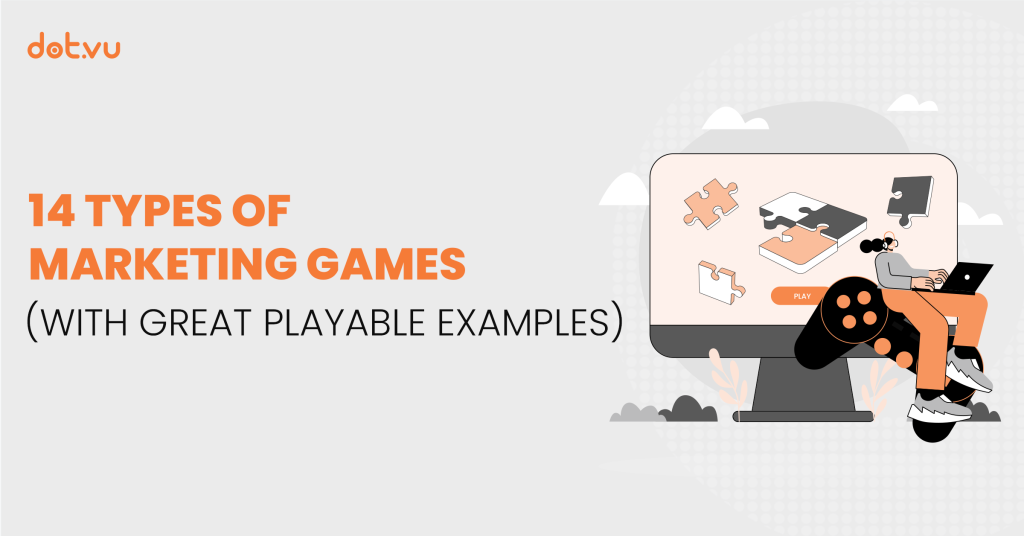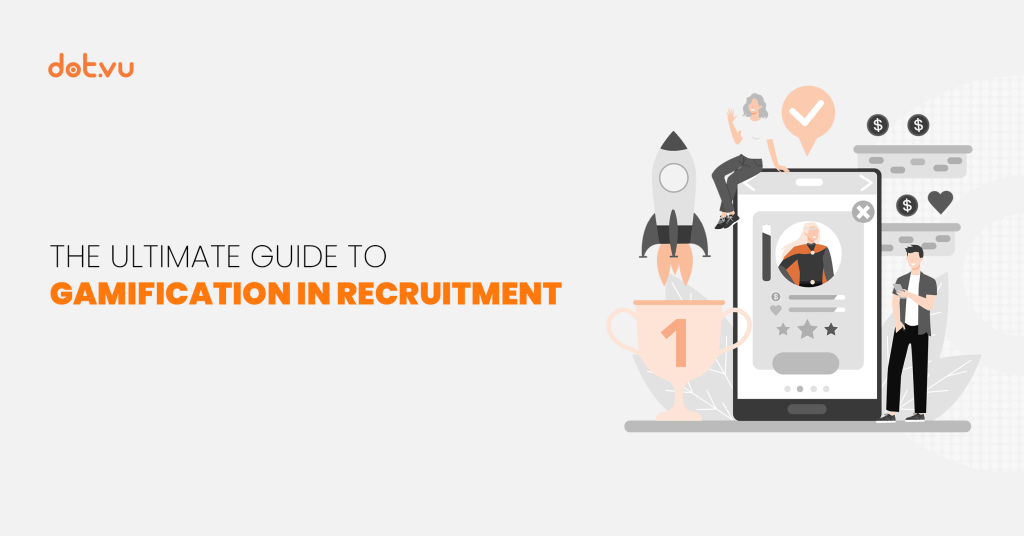
Gamification is an approach that integrates elements of games to enable and motivate people to reach their target objectives. Have you ever played a video game and felt that strong urge to win? That is gamification, but in recruitment instead. 78% of people agree they are more likely to become interested in the business if a gamified recruitment process is used, according to research. This has led to gamification being a commonly used tactic in recruitment for businesses trying to attract, assess and hire the best talent.
You cannot gain the hearts and minds of candidates and keep them engaged enough through JD or screening resumes and interviews. These processes are time consuming, stressful and inherently high-stakes for candidates whilst also being stressful for employers wading through the jungle of CVs looking for that right match. Gamification can help avoid such negative experiences by making the entire recruitment experience to be interactive, engaging and informative.
It is a good practice to use gamification such as points and rewards during the recruitment process because they will sell your business to the candidate while also evaluating their abilities as per your organizational needs.
In this blog, we are going to go through what gamification in recruitment is, the advantages and disadvantages of it and how it can be useful.
Table of contents:
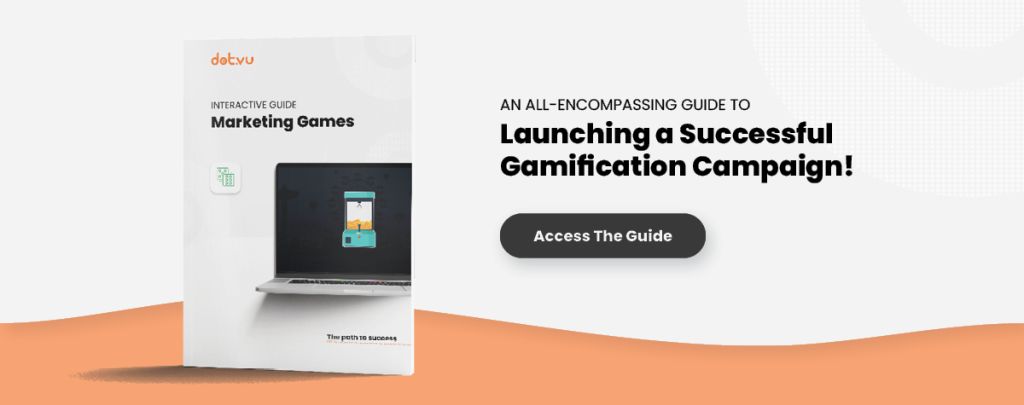
The problem with traditional recruitment methods
Old school recruitment methods are dying. Part of it is that consumers are not engaged. They often miss job postings and resumes, and the application process can frequently be too long. That leads to fewer people finishing it, and therefore, fewer good applications. As a result, there may not be enough good candidates for open positions.
Not to mention, traditional recruitment approaches are quite expensive and time-consuming. Hiring managers need to go through several resumes before they can finally come up with the best one which consumes a lot of time and effort. Finally, when you need to have a multi-round interview process for the role, it takes valuable time out of your day to schedule and continue with other candidates.
Gamification is a great solution to these challenges faced in recruitment. Gamification is one key trend which improves recruitment because it makes interaction lively and interesting for the candidates as well as the employer. Fun, informative and challenging recruitment process increases the chances of a candidate completing it. Higher completion rates translate into a bigger slate of good applicants.
What is gamification in recruitment?
Gamification in recruitment is a broader idea that builds on the same principles of gamification. These may include simulations, assessments and rewards. Recruiters are able to attract candidates by putting a little game element inside their recruitment process.
Related: What is gamification in marketing?
How is gamification useful for recruitment?
The advantage of this technique is much more than appealing as gamification brings game elements into recruitment processes to make it exciting.
Some of the benefits of gamification in recruitment include:
1. Increased engagement:
It makes the recruitment process more interesting for the candidates, by putting a little fun and challenge into them. This ensures a better response from potential candidates. Because of this, there will be heightened interest and participation in the recruitment process.
2. Improved candidate assessment:
Recruiters are able to evaluate a candidate’s skills and capabilities through more meaningful interactive challenges. As an example, an assessment game can help recruits assess the problem-solving skills or the team bonding nature of a candidate. Moreover, it can also keep track of soft skills and personality traits.
3. Enhanced brand awareness:
Turning your recruitement process into an engaging and memorable gamified experience can get more attention from candidates. On top of that, it shows the attractive qualities of the company compared to competitors. Implementing game-like features can help showcase the company’s innovation and creativity which will lead to a better reputation among job seekers.
4. Cost-effective:
Gamification can be a cost-effective way to attract and assess candidates because it eliminates the need for expensive assessment centers and recruitment campaigns.
5. Reduced bias:
Gamification can also reduce bias by measuring the basic skill set and abilities of a candidate while not relying on age, gender, language skills, etc. Doing this can make sure that the recruitment process is fair and equal for every candidate.
6. Talent pool expansion:
Employers can widen their search and bring in more diverse candidates across different backgrounds, skills as well as age groups by integrating gamification.
7. Improved candidate experience:
Adding a gaming element means providing fun and challenges rather than terms and conditions, helping candidates to understand the company culture and values in an engaging manner. All this will lead to more completed applications and a better quality of candidates.
Gamification in recruitment examples
Including gamification in your recruitment process can involve tons of game elements that can attract and engage your potential candidates. You add create a game to test a candidates problem-solving skills. This gives you a chance to assess them in a more interactive way.
So how about taking your recruitment to the next level with gamification?
Here are a few gamification elements to use in your next recruitment strategy:
1. Interactive Quizzes
Interactive Quizzes are arguably one of the more popular types to include in your recruitment process! They are different kinds of quizzes, from multiple-choice to visual. It can also be tailored to assess knowledge, skills or analytical ability of the candidate. You can even add a game element to an Interactive Quiz to make it more engaging.
These quizzes builds excitement during the hiring process and also helps companies gain insights regarding the skills and abilities of candidates in a better way. Interactive Quizzes can be a very helpful to provide feedback on a candidate’s performance.

Related: What is an Interactive Quiz?
2. Personality Tests
Personality Tests are a type of test that helps to get better insights into the traits and behavior of a person. You can use this to identify a candidate’s potential fit within the culture of your organization. Gamifying personality tests can encourage candidates to complete the whole test which leads you to acquiring completed applications instead of half-way applications.
These tests can be used to identify your candidate’s strengths and weaknesses, allowing you to customize your approach during recruitment.
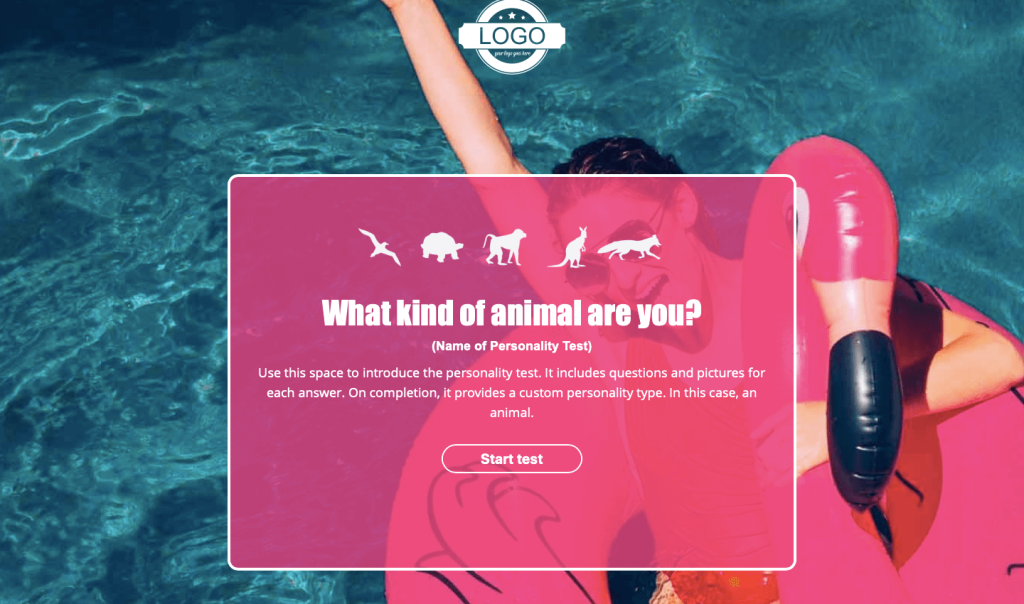
Related: What is an Interactive Personality Test?
3. Interactive Assessments
Interactive Assessments are another gamification component widely used in recruitment as well. These tests are focused on a particular area, including technical skills, critical thinking or communication skills, to assess what the candidate knows.
Assessment tests can allow companies to gain a better insight into what a candidate is capable of doing, which helps in identifying the individuals that would be best suited for the role.

Related: Interactive Assessments: Everything you need to know
4. Interactive Virtual Tour
Interactive Virtual Tours provide an engaging experience for job seekers during the recruitment process. You can runs tours of your offices, facilities and culture to bring in candidates interested in learning about the workplace. And you can also add some games to the virtual tour. Overall, Interactive Virtual Tours can be a powerful tool in gamification in recruitment.
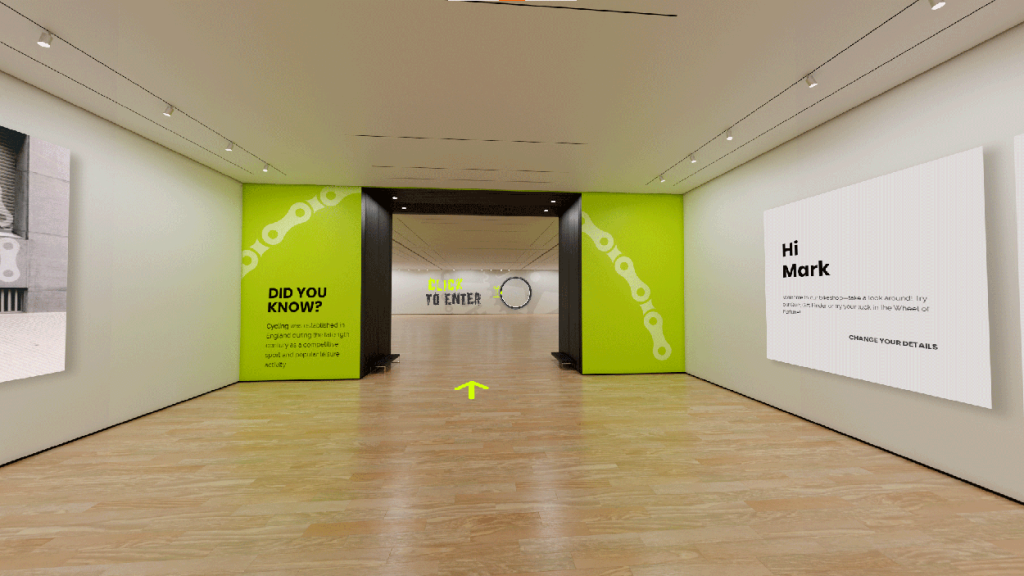
Related: What is an Interactive Virtual Tour?
Challenges of gamification in recruitment
What else can I say? Gamification is a very popular tactic to use. Nevertheless, like any new technology, there’s also its challenges. But, it’s better to address these potential issues before implementing gamification in recruitment.
Here are some challenges associated with using gamification in recruitment:
1. Ensuring fairness and objectivity
While gamification might work wonders, one of the biggest troubles associated with it is ensuring that all assessments and simulations are fair. All candidates should be measured by the same standards, and the game design and scoring must not favor any particular group.
2. Technical issues
Technical issues act against the candidate experience resulting in candidates reflecting on their journey through the recruitment process. So don’t forget to test it out for yourselves before putting it out there for your candidates.
3. Investment of time and resources
Creating engaging games and assessments requires specialized skills not always available in-house. Additionally, the implementation and management of gamification requires additional resources, including the technology and personnel to support it.
Gamification in recruiting – try it out for yourself!
Overall, gamification can be a great tool to hire candidates for the job because it makes the recruitment process more interactive and fun-filled, resulting in securing quality people.
Remember to take the necessary steps to ensure a fair experience for each candidate and that it meets the highest standards of inclusivity.
Or to make it easier on yourself, why not try out Dot.vu? Our Interactive Content platform a wide range of customizable Marketing Games that you can use in any of the examples above. They are ideal for any marketing plan, as our templates allow you to customize your games so that they reflect the face of your brand. Sign up for a 14-Day Free Trial account today and try out our customizable templates for your recruitment and marketing strategies.

